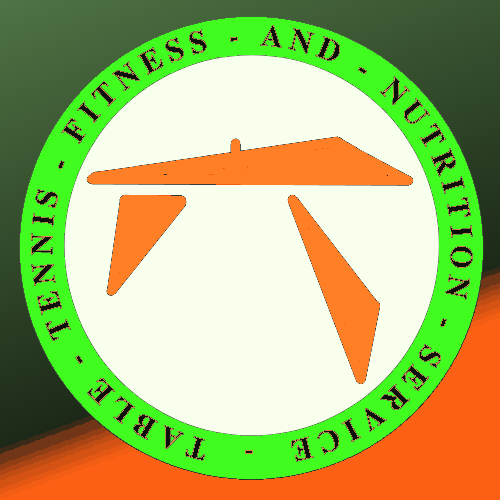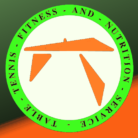
Preparing for Competition
As an athlete you spend countless hours perfecting your technique in preparation for a competition, but honing your technique in isolation is not enough. There are other aspects that need to be considered when preparing yourself for a competition. In this article we will look at pre-competition nutrition and mental preparation.
Nutritional Preparation
In general a table tennis player should be eating foods that increase and maintain energy levels, as a five set table tennis match can burn up to 500 kcal – complex carbohydrates such as brown rice, whole grain cereals, whole grain bread, whole wheat pasta and vegetables should make up about 60% of your calorie intake.
A table tennis player should also be consuming foods that boost brain power as table tennis is one of the fastest games in the world requiring not only lightening fast reflexes but extremely quick thinking. That’s why it’s vital to eat foods that will give your brain a boost to enable you to concentrate harder for longer, think quickly and more clearly and ultimately accomplish more.
Many cooking oils are great for the brain, including coconut oil and olive oil. Antioxidant fruits, like berries or grapes are also a smart choice. Foods that are rich in omega-3 fatty acids like salmon are great for your long-term brain health and foods like eggs and walnuts are also good for the mind.
Finally a table tennis player should be eating foods that help build lean muscle. The stronger you are, the harder you can hit the ball and the more power and pace you can generate. However, you do not want to bulk up too much as this will have the adverse affect of slowing you down and limiting your range of movement. Instead you need to build lean muscle. Protein is the main building block for gaining muscle. You need to aim for about 15% of your total calorie intake to come from protein (approx 1.2 grams of protein per kg of body weight).
So if a player’s diet consists of a lot of complex cardohydrates, protein and brain boosting oils and fruits, what is best to eat pre-competition?
What to eat the day before:
Keep it simple and stick to what you know, the last thing you need is an upset stomach the day before a competition.
Carbohydrates supply energy to your body, so make sure you eat a high carb meal.
Hydration is essential, so drink plenty of water throughout the day.
Eat small meals, a huge meal the night before can leave you feeling sluggish the next day.
What to eat on the day:
Your pre-event meal should be eaten about 2-4 hours before you start. If you have an early morning start and won’t have time for a full breakfast go for a carb rich snack.
Aim for comfortably full and not stuffed.
Start hydrating as soon as you wake up.
Pre-event ideas: cereal with milk, toast and honey, banana, yogurt or dried fruit.
What to eat throughout the competition:
Water should be prioritised over fruit juices and fizzy drinks, which will give you an instant energy spike but you will fall of this very quickly. Milk is also great for rehydration after strenuous exercise.
Sandwiches, wraps, rolls, rice or pasta are perfect light meal options.
Fruit, nuts and cereal bars are also good energy boosters.
Mental Preparation
“To win you have to be in control of your mind even more than your body” according to British pro-climber Shauna Coxsey.
The hours spent training and honing your technique will count for little if you haven’t prepared mentally and are not in the right frame of mind before a competition.
Pre-Performance Routines
Many players find pre-perfomance routines very useful in preparing themselves for competition. A pre-performance routine works by creating triggers in your brain that associate a good performance with actions you can easily perform before a match. If you have practised techniques leading up to an event to help you to stay relaxed and positive, you will feel less anxious and have much more confidence on the day. Now is the time to reflect on your training to build confidence. Focus on how far you have come, the work you have put in and how much you have improved thanks to your efforts.
Pre-performance routines can involve such things as visualisation and imagery. Imagine yourself performing well and executing your game plan to perfection. A pre-performance routine could also be a simple warm up done whilst listening to motivating music or whilst visualising a good performance. Another great idea is to create a video of yourself playing really well and to watch this on the morning of an event. Finally some people like to write affirmations or statements of success. Looking at these before a match can help to boost confidence. No matter what you decide your pre-performance routine to be, it is important to do the same one over and over so that your brain and body get used to the same routine and get ready to perform.
Overcoming anxiety
It is natural to feel nervous before a game, this is your body’s way of preparing for an upcoming challenge, but you can stay calm by staying in the present and thinking about achieving smaller goals on the way to achieving your main target. For example instead of thinking about winning the match, focus on trying to win the first five points. By breaking it down into smaller steps, your main target will suddenly feel much more achieveable rather than a million miles away and you will start to feel more in control. If you become consumed thinking about winning or losing, you’ll get distracted from the actions you need to perform physically. Ignore the factors you have no control over and focus on the individual steps you need to take to achieve your ultimate goal.
Deep breathing or simple meditation is a great way to keep your body and mind relaxed. It has the benefit of clearing your mind of all negativity and anxiety and helping you stay in the present. It can be practised before competition and also during a match if you find yourself getting frustrated or anxious.
Positivity & Confidence
Positive self-talk is vital both prior to and during competition. The language we use can help position our thoughts accordingly. It’s important to use words and phrases that trigger the right emotions and actions required for optimum performance. Set yourself up for success by talking through the event in a positive, uplifting way as a coach would motivate a team.
It’s only natural for doubts and negative thoughts to creep in “am I good enough?”, “can I do this?” In Sports Psychology athletes are taught not to block out these negative thoughts completely but to acknowledge these thoughts in a positive way. One way of doing this is to use our past experiences as an indicator for future success. This can include reminding ourselves of our past achievements and times we have overcome our negativity and anxiety.
Keeping upbeat and reminding yourself of your abilities and having belief in yourself are all crucial to performance. It has been found that body language can impact our performance, so it is important for athletes to stay mentally positive and confident before a competition. Your positive, confident body language has the added benefit of making your opponent feel uneasy too!
Coping with adversity
In any match or competition things will not go to plan all of the time, so you need to prepare to cope with adversity. With experience, athletes learn to cope with situations that may cause them to lose focus, confidence or composure. You need to anticipate the challenges that may affect your mindset and develop strategies to cope with each one. Some challenges that may affect your mindset could include an opponent getting lots of nets and edges against you, a noisy or distracting coach, unforced errors creeping into your game, an umpiring decision that goes against you. There are many more challenges that you could be faced with which could have an impact on your mindset but only if you let them. We all get frustrated by nets and edges, unforced errors and umpiring decisions but how we deal with this frustration and recover from it is what is important. If we let the frustration take control of our emotions, we will not recover and will probably end up losing the game. However, if we train our minds to deal with these adverse situations, we can recover more quickly and refocus our thoughts on the next point. Some strategies that athletes use to control their frustration are deep breathing, counting slowly to 10, positive self-talk (a specific phrase that they use in these circumstances such as “it’s over, the next one”), taking a timeout to refocus and visualisation, taking the mind back to the positive performances e.g. where the same situation prevailed and they came through to win the game. Like all mental training techniques, the strategies need to be practised. Whichever strategy you choose, it is important to use the same one over and over so your mind gets used to refocusing and bringing you back to the present.
Preparing for a competition involves a lot more than just fine tuning your technique. If you have not consumed the correct amount of the appropriate foods and are not prepared mentally, you will not compete at your optimum level and all your efforts will count for very little. For further information on nutrition and mental toughness in table tennis, check out my website www.ttfans.ie and download my ebooks “Nutrition in Table Tennis” and “Mental Toughness in Table Tennis Courses & E-books – TTfans.ie .
